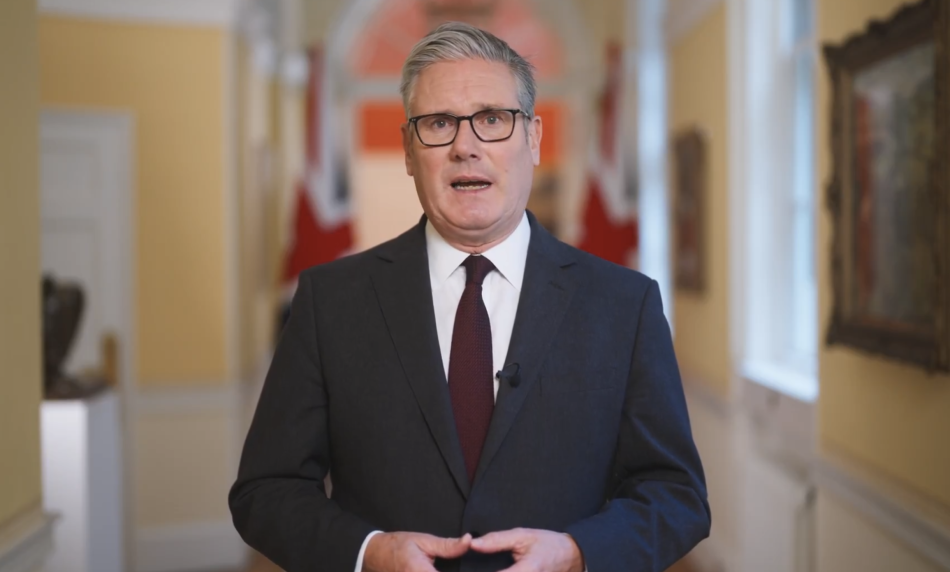Rishi Sunak’s political journey over the past few years was summed up by him well in a joke he made responding to the King’s speech earlier this month: ‘On the government benches, life comes at you fast…before you know it, you have a bright future behind you, and you are left wondering if you can credibly be an elder statesman at the age of 44’. It was a good gag – witty, self-deprecating and with a kernel of truth in its reference to his meteoric rise and equally stratospheric fall. As someone who was at school with Sunak in the Nineties, it brought back memories of the Rishi I knew – rather than the slightly uncomfortable politician he became as prime minister.
Teenage Rishi Sunak was considerably better than that
The first time I ever met Rishi, I was introduced to him through our mutual friend James Forsyth, erstwhile political editor of this title. Sunak was in the year above us both, and had quickly established himself as one of the school celebrities. Forsyth and he were in the same boarding house, ‘Trants’, and Sunak, appropriately enough, would later become Head of House, as well as Head Boy of the school. Unusually, he was known exclusively by his Christian name; I don’t think anyone ever referred to him as ‘Sunak’, bar, of course, the more rulebound teachers.
As for my meeting Rishi, I have a vague memory of a cheerful, enthusiastic 15-year old bounding up to me to shake my hand. ‘You’re a friend of James’s! So good to meet you!’
Winchester College, in the mid-90s, was not usually a place where pleasantries of that sort were exchanged. Generally speaking, one either did a curt nod of ‘hi’ or sneered. After all, mid-Nineties public schools were also a place where any kind of ‘otherness’ – skin colour, sexual orientation or simple oddity – was seized upon as a mark of distinction, and was weaponised accordingly.
The teenage Rishi Sunak was considerably better than that. He was that rare thing, a boy (or ‘man’, as Wykehamists were known) without enemies in the school, well liked and respected by all. Teachers liked him because he was bright, articulate and loquacious – although, after the election result, one of their number did send me a lightly caustic message in which he said, referring to the school football tournament, ‘Rishi’s worst defeat since Trants lost 2-1 to Z in Flower Pot, I reckon’ – and his fellow pupils saw him as someone friendly and decent, without the bitchiness that permeated the school’s DNA. We were no more than nodding acquaintances, but he was one of the people from school I remembered, and watching his career in public life has been a fascinating, at times frustrating, experience: his tetchy, superior performances in debates and interviews seemed a world away from the boy I knew a quarter of a century ago.
Rishi’s pleasant, easy public rapport with Keir Starmer now is a far cry from the televised debates during the election, when Sunak continually interrupted him and seemed on the verge of rolling his eyes at some of Starmer’s more trite formulations. He coped especially poorly during press conferences when journalists contradicted anything he said. As Zoe Williams once wrote of Sir Ben Kingsley when she interviewed him, ‘Imagine he was king, and had arrived at an orphanage in a Rolls-Royce to adopt all the orphans and take them back to his palace, and I was a parking attendant who had stuck a ticket on his car: that gets you about halfway to the derision and disgust in his voice.’ Thus it was with Sunak at his worst, manifesting nothing more than contempt and irritation at people he regarded as his intellectual inferiors daring to answer back to him. He is now, blessedly, free of such encumbrances.
Sunak is still a young man, capable of enormously valuable public service on the world stage, and I would be astonished if that same ethos of decency and civility, set free from the necessity of leading a fractious and divided party, did not manifest itself in our national life once again. I would say that it would be my privilege to buy him a pint, but, as it’s the famously teetotal Sunak, he’d have to settle for a Coca-Cola.
Few blame Sunak entirely for the Conservatives’ worst election defeat in history, acknowledging that he was handed a bad, even unwinnable hand, and played it as best he could. Perhaps another leader – such as Sunak’s predecessor Liz Truss – would have led the party to an even worse result.
In any case, Sunak’s decision to remain as leader of the opposition until a new leader can be installed in November is a public-spirited acceptance of a thankless task that few defeated politicians have ever willingly taken on. Despite the reports during the election campaign that Sunak had gone early to the country in order to step down as a politician, whether he won his seat or not, and move his family to California – there was much innuendo about school terms out there starting in August – he has acted in a principled and upstanding fashion. For those who knew Sunak at school, this is no surprise.







Comments